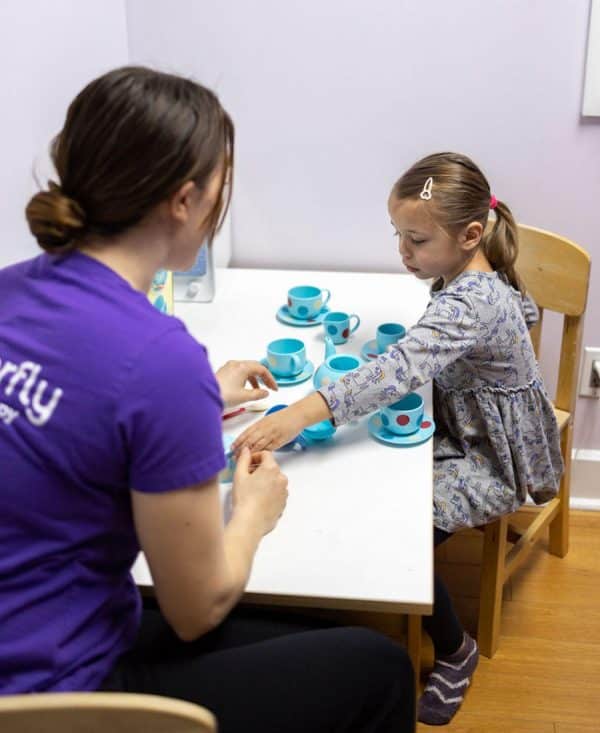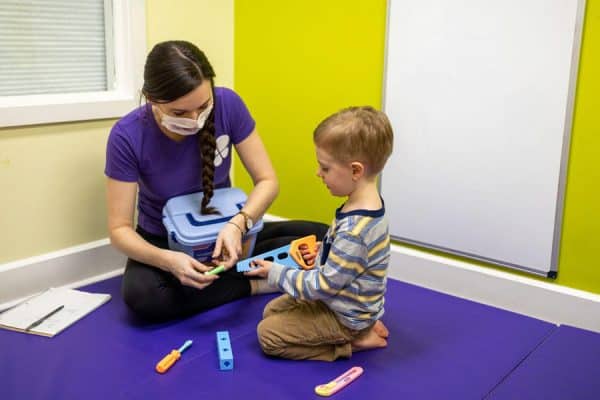Gestalt Language Processing
Does your child communicate using memorized phrases, such as lines from movies or favourite stories (also known as “scripting” or “delayed echolalia”)? Do they babble or have reduced speech clarity, but use rich and repetitive intonation patterns or a “musical-like” way of speaking (e.g., “uh uh uhhh” with the same intonation as “ready, set, go”)? Do they seem to be “stuck” using only single words, and have not made much progress using traditional language therapy approaches? Do they like to replay the same YouTube or TV clips over and over? Your child may be a Gestalt Language Processor.
Gestalt Language Processing (GLP) describes a natural way of developing language, wherein children recognize “chunks” of language (i.e., gestalts) and assign an overall “feeling” to them, rather than first learning specific meanings for single words. These language “chunks” may be a single word, a phrase, a sentence, or even an entire scene from a movie. They may be repeated immediately or a few minutes after your child first hears them, or even days, weeks, months or years later.


Children who are GLPs develop language naturally over time, passing through developmental stages, just as do children who are Analytic Language Processors (ALP; the other way of developing language and the “traditional” view of language development). There is no known reason why certain children develop language as GLPs or as ALPs, though there is some evidence to show that many children with Autism Spectrum Disorder are also GLPs. However, not all autistic children are GLPs, and not all GLPs are autistic.
If your child shows one or many of the characteristics above, or if you believe they may be a GLP, it would be beneficial to receive a Speech and Language assessment.
During the assessment, the Speech-Language Pathologist will gather a detailed account of your child’s communication history and characteristics and will observe your child during play and/or conversation. The assessment is typically play-based (or interest-based for older children), where the Speech-Language Pathologist follows your child’s lead to allow your child to express themselves authentically and in a spontaneous way. Based on the discussion and observations, the Speech-Language Pathologist will determine whether your child is likely a GLP, at which stage of language development they are communicating, and whether the Natural Language Acquisition (NLA) approach (an evidence-based approach to support GLPs) is appropriate for your child.
Why Butterfly?
Our therapists understand that Gestalt Language Processing is a natural way of developing language. We build on your child’s strengths and unique ways of communicating in order to help your child move through the stages of Natural Language Acquisition. Members of our team are familiar with the evidence-based Natural Language Acquisition approach, both through the Meaningful Speech course and through continuing education on various platforms. Our clinicians use child-centered and neurodiversity-affirming approaches to help your child feel comfortable and confident, to ultimately be able to express themselves in their own words and reach their full potential.
